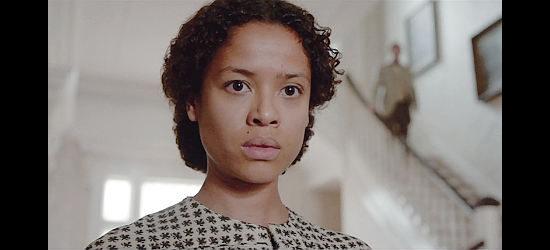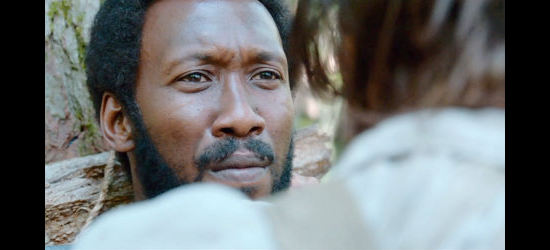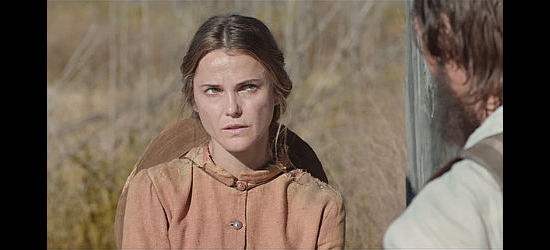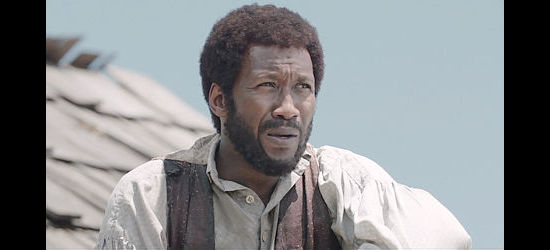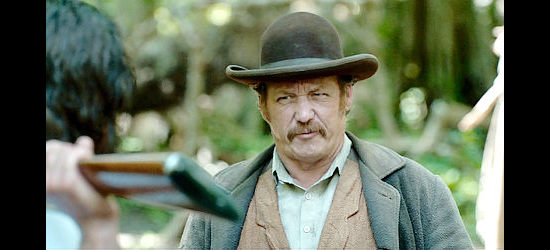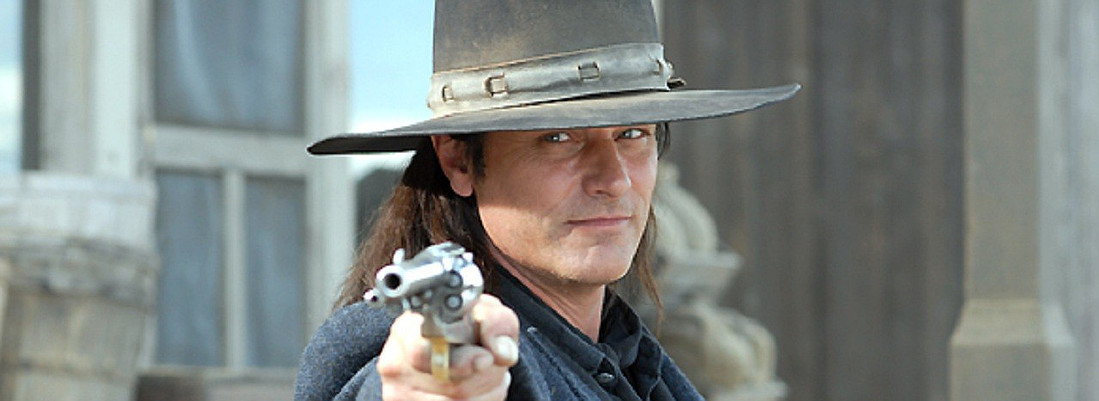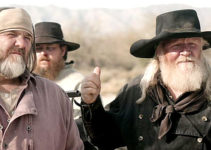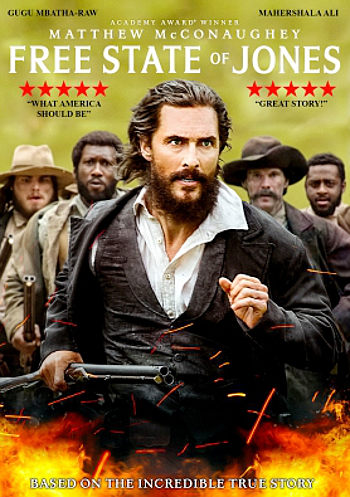 Matthew McConaughey is Newton Knight, a medic serving with the Confederate Army and quickly growing disillusioned with this Civil War.
Matthew McConaughey is Newton Knight, a medic serving with the Confederate Army and quickly growing disillusioned with this Civil War.
As he watches farm boys being butchered on the fields of battle, he learns of new laws being passed that excuse the sons of slave holders from service.
Then a young relative named Daniel shows up, announcing that he’s been ordered into the Army and that Confederate troops back home are requisitioning large amounts of stock and provisions from family farms.
The breaking point comes when Daniel is killed in his first battle. Knight wraps his body, places it on a mule and heads home, carrying not one damn bit about the penalty for desertion.
And once home, he begins defending family farms from the requisitioning troops. Until he finds bloodhounds on his trail and is forced to flee to the swamps like a runaway slave.
With the war going badly, he’s soon joined by more deserters, including former buddies Jasper Collins (Christopher Berry) and Will Sumrall (Sean Bridgers).
And once armed, Knight leads them into open rebellion, determined to take back Jones County from the Confederates and oust the plantation owners.
With blacks and whites, men and women fighting side by side, they wind up taking control of three and a half counties in Mississippi and declare the area the Free State of Jones.
Then comes the Emancipation Proclamation and the end of the war.
But Knight soon learns the battle for true freedom isn’t over yet, especially not for his black friend Moses (Mahershala Ali) and his black common law wife Rachel (Gugu Mbatha-Raw).
Because the very same whites who led the South into the Civil War are resuming positions of power and doing their best to undo everything war accomplished.
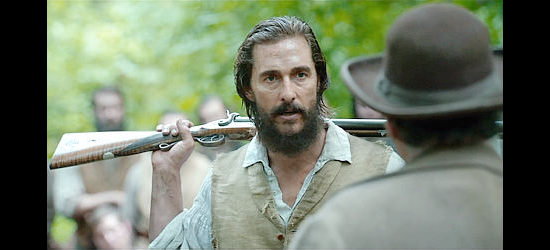
Matthew McConaughey as Newton Knight, trying to keep his troops in line in Free State of Jones (2016)
Review:
Compelling film about a true uprising within the Confederacy during the Civil War as more and more Southerners become convinced it’s a case of the poor fighting a rich man’s war.
The Civil War era action sequences are very well done. So is the fight to gain control of Jones County. The post-war portion of the film drags a bit, perhaps because filmmakers don’t do a very good job of establishing black characters beyond Moses and Rachel.
But Gugu Mbatha-Raw — forced to endure sexual abuse at the hands of her owner — and Mahershala Ali — a slave collar attached around his neck for the early part of the film — turn in sterling performances in those roles.
Keri Russell’s character is less convincing. Forced to flee to Georgia when her husband becomes a criminal, she returns to him with his son after the war and quietly accepts life living in a shack out back while Knight lives with his black lover Rachel.
The film jumps forward to the 1940s several times as Davis Knight, Newton’s great grandson, is on trial for violating Mississippi’s miscegenation laws.
Though he looks white, Davis is indeed one-eighth black, meaning he can’t marry a white woman in Mississippi. Those segments seem to disrupt the flow of the film, but are effective in showing how strong prejudice was long after the Civil War ended.
Directed by:
Gary Ross
Cast:
Matthew McConaughey … Newton Knight
Gugu Mbatha-Raw …. Rachel
Mahershala Ali … Moses
Keri Russell … Serena
Christopher Berry … Jasper Collins
Sean Bridgers … Will Sumrall
Jacob Lofland … Daniel
Cade Mansfield Cooksey … Thomas Coleman
Thomas Francis Murphy … Elias Hood
Bill Tangradi … Lt. Barbour
Wayne Pere … Col. Robert Lowry
Brian Lee Franklin … Davis Knight
Joe Chrest … James Eakins
Jill Jane Clements … Aunt Sally
Troy Anthony Hogan … George
Dana Rhodes … Ward
Runtime: 139 min.
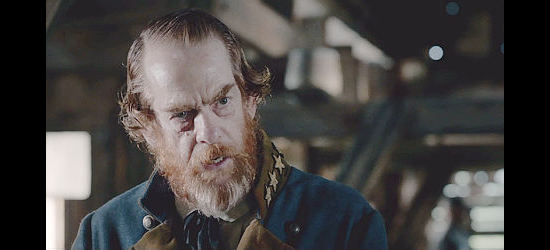
Wayne Pere as Confederate Col. Robert Lowery, trying to make a deal with Sally in Free State of Jones (2016)
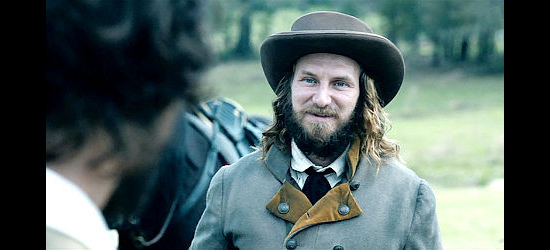
Bill Tangradi as Lt. Barbour, the Confederate officer in charge of securing provisions in Jones County in Free State of Jones (2016)
Memorable lines:
Jasper Collins: “You know they shoot deserters, don’t you?”
Newton Knight: “Well, they shoot everybody round here anyway. Don’t seem to make no difference where the bullet comes from.”
Will Sumrall: “He died with honor, Newt.”
Newton Knight, of his young relative Daniel: “No, Will. He just died.”
Lt. Barbour, preparing to requisition supplies, but faced with a mother and three young girls aiming guns at him: “They gonna shoot me?”
Newton Knight; “Last time I checked, the gun don’t care who’s pulling the trigger.”
Newton Knight to Lt. Barbour, when he questions whether he’d really kill a man over a wagon load of corn: “You steal our corn, we got nothing to feed our hogs. If we can’t feed our hogs, we got nothing to put in the smokehouse. We got nothing to put in the smokehouse, we starve in the winter. That’s murder, ain’t it? You know what the penalty is for murder, don’t you, lieutenant?”
Newton Knight, on the ability of one man to own another: “No you cannot, can you? You can own a horse, you can own a mule, a cow or an ox. But you cannot own a child of God.”
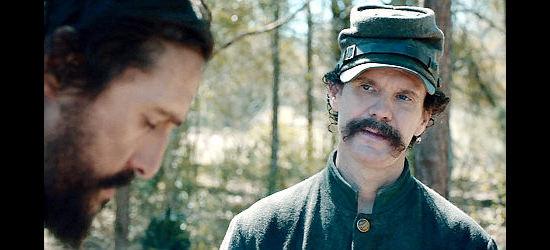
Sean Bridges as Will Sumrall consoles Newton Knight on the loss of a relative in Free State of Jones (2016)
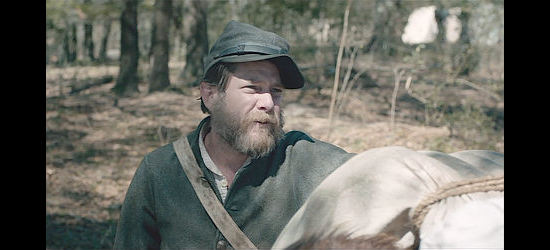
Christopher Berry as Jasper Collins warns Newton Knight about the penalty for desertion in Free State of Jones (2016)
Newton Knight: “From this day forward we declare the land north of Pascagoula Swamp, south of enterprise and east to the Pearl River to the Alabama border, to be a Free State of Jones. And as such we do hereby proclaim and affirm the following principles. Number one, no man ought to stay poor so another man can get rich. Number two, no man ought to tell another man what you got to live for or what he’s got to die for. Number three, what you put in the ground is yours to tend and harvest and there ain’t no man ought to be able to take that away from you. Number four, every man is a man. If you walk on two legs, you’re a man. It’s as simple as that.”
Rachel, trying to convince Newton to move North: “I don’t want my boy to get lynched. Or beat. I want him to go to a school. I don’t want him to drop his eyes every time a white man walk by. I don’t want him to be a ‘boy’ no more once he turn into a man.”
Newton Knight, told no Republican ballots are available at the polling place: “These men are here to vote. They mind dying a whole lot less than you do.”
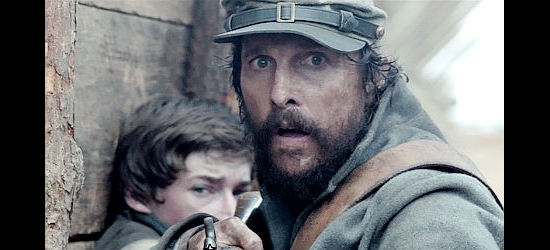
Matthew McConaughey reacts after shooting down a Union soldier while Daniel (Jacob Lofland) looks on in Free State of Jones (2016)
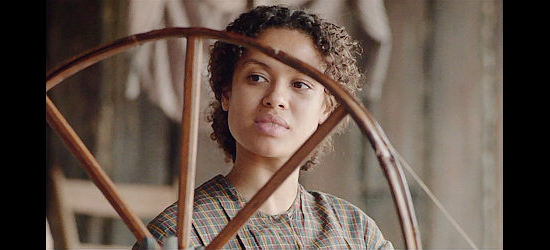
Gugu Mbatha-Raw as Rachel, settled into a post-war life with Newton and their child in Free State of Jones (2016)
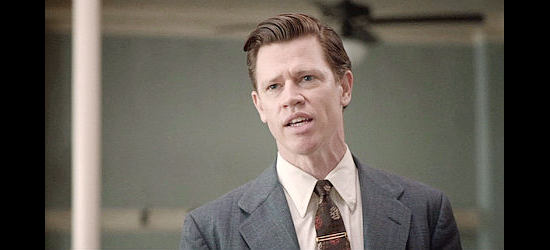
Brian Lee Franklin as Davis Knight, on trial in 1946 for an illegal mixed marriage in Free State of Jones (2016)
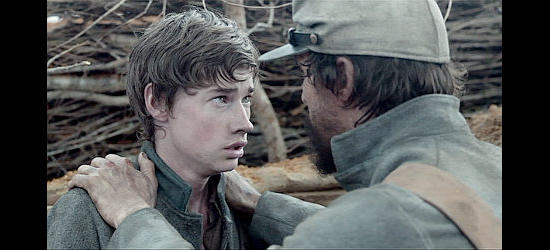
Jacob Lofland as Daniel, about to enter battle for the first time with Newton Knight by his side in Free State of Jones (2016)
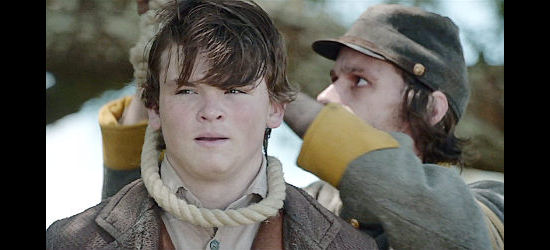
Cade Mansfield Cooksey as Thomas Coleman, a member of Newton Knight’s force in Free State of Jones (2016)
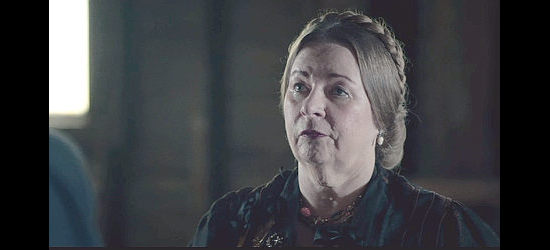
Jill Jane Clements as Aunt Sally, the woman who helps Newton Knight escape to the swamp in Free State of Jones (2016)
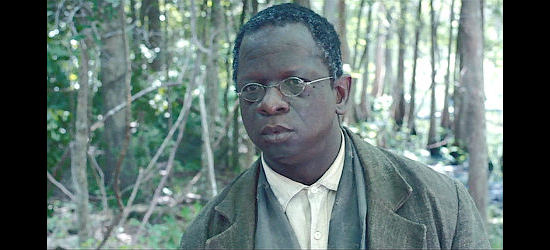
Troy Anthony Hogan as George, the man who leads Newton Knight into the swamps in Free State of Jones (2016)
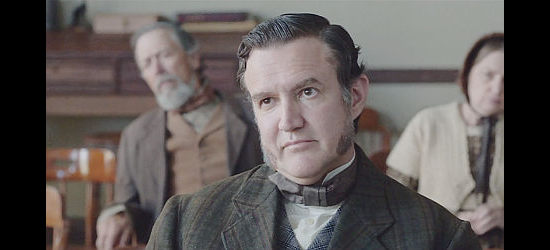
Joe Crest as plantation owner James Eakins, holding Moses’ son as an apprentice in Free State of Jones (2016)
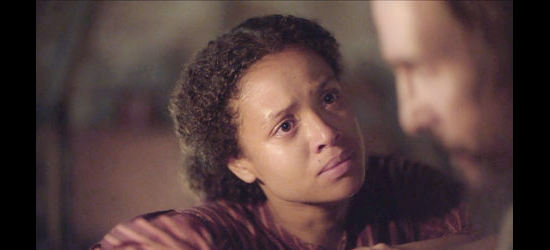
Gugu Mbatha-Raw as Rachel, pleading with Newton Knight to move north for the sake of their son in Free State of Jones (2016)
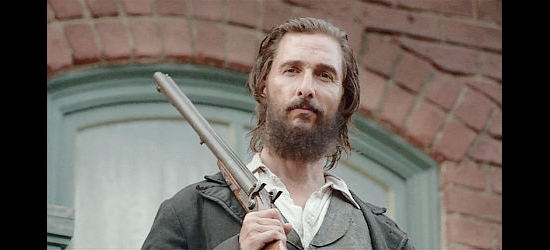
Matthew McConaughey as Newton Knight, after a victory of the Confederate regulars in Free State of Jones (2016)
